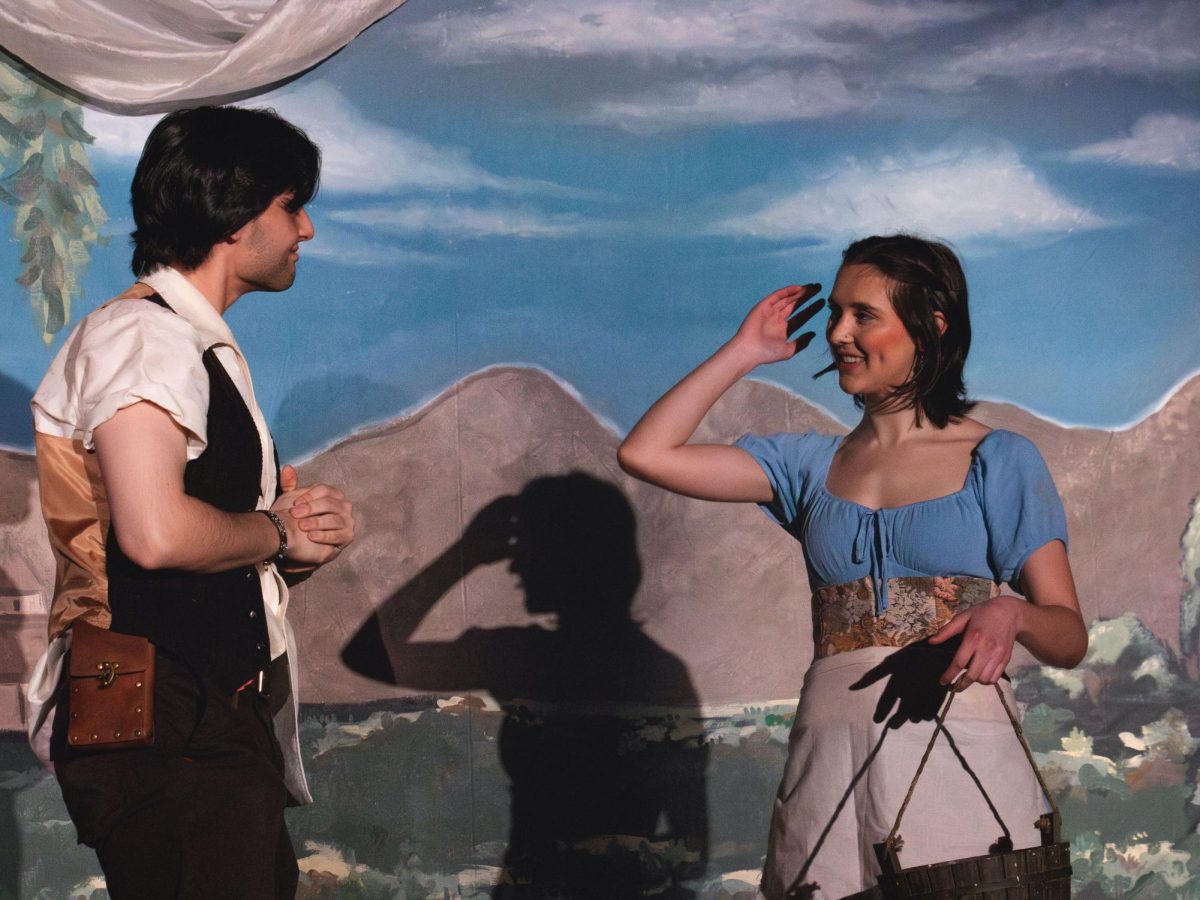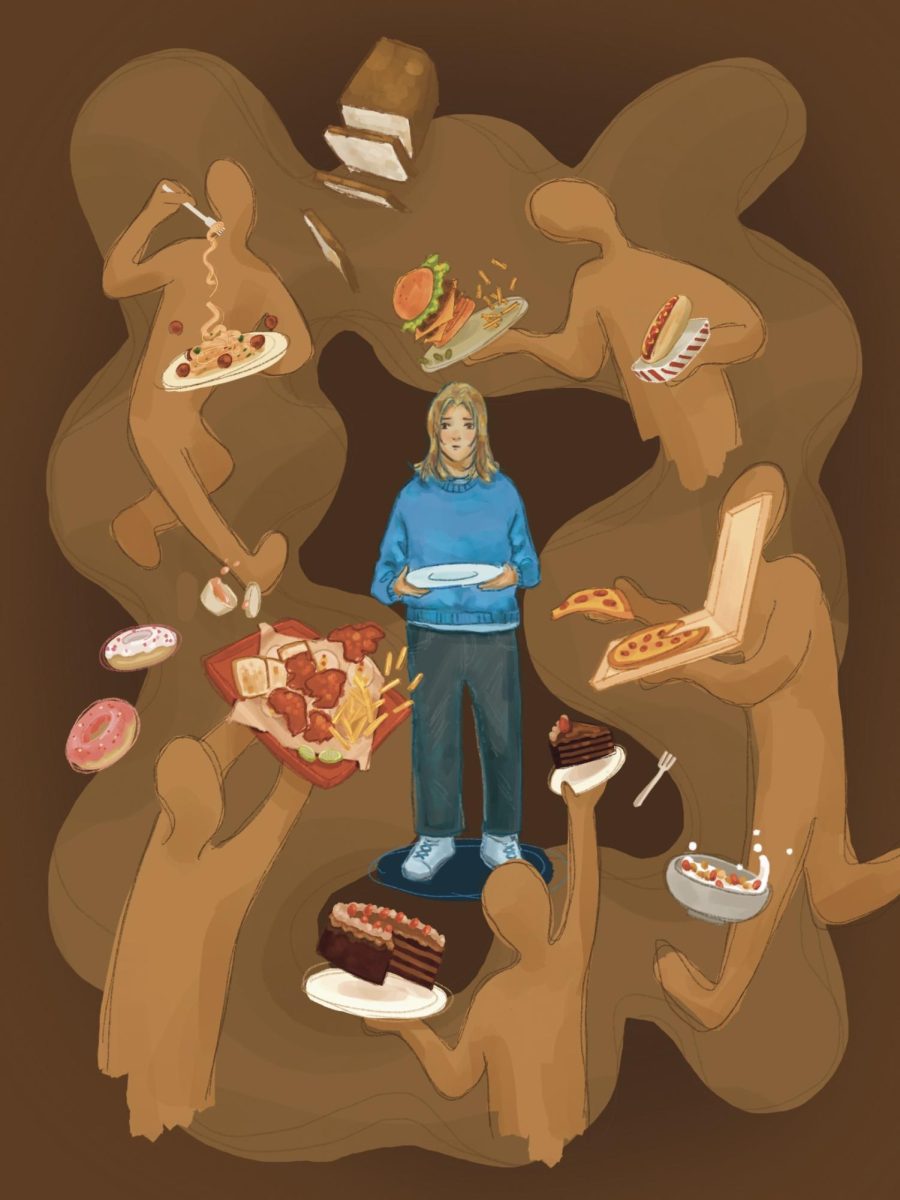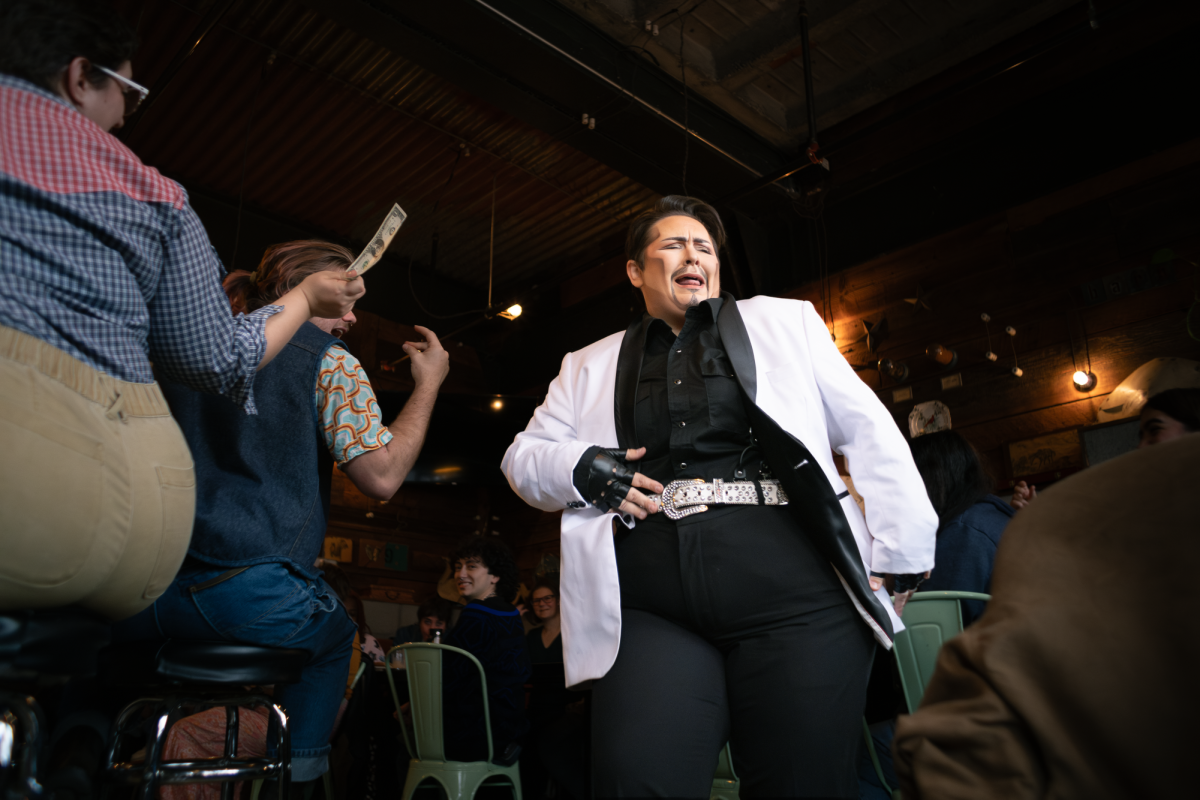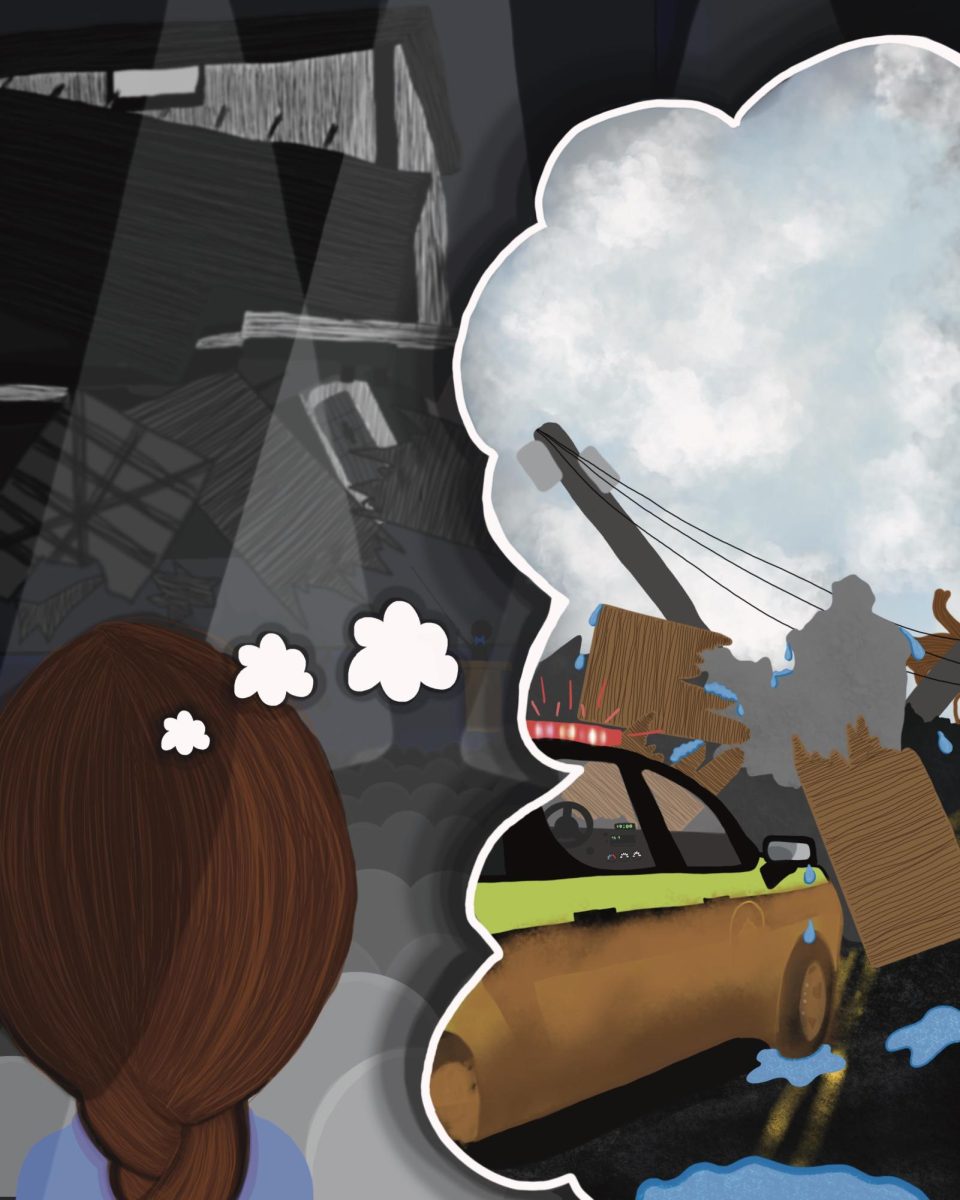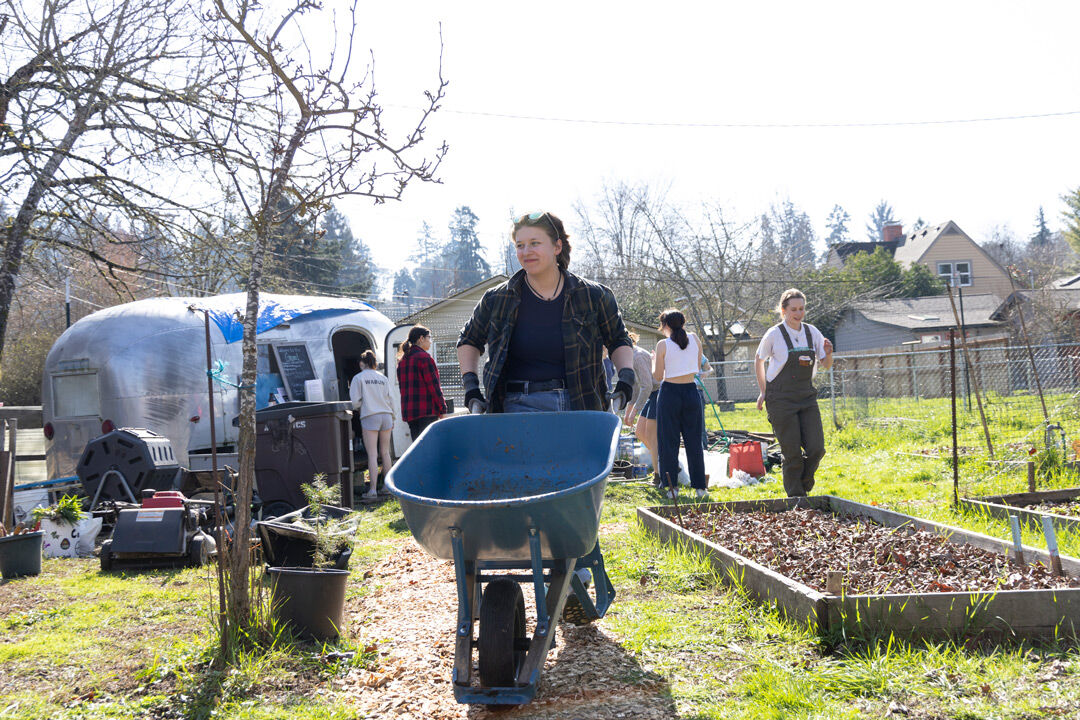CONTENT ADVISORY: Sexual Violence.
Take Back The Night is a global event that inspires survivors and allies to march, protest and share their experiences around sexual violence. It’s a night of empowerment, support and radical protest for many survivors.
Due to the pandemic, Take Back the Night can’t happen in its normal capacity, but that doesn’t mean we stop sharing our stories. I wanted to share my story in our magazine hoping it would help others and create an opportunity for other survivors to do so as well. Ethos has partnered with several UO students and alumna who are survivors of sexual violence to create a platform for us to share our experiences.
The following stories describe sexual assault, rape and domestic violence and are at times graphic in detail. Our goal is not to trigger others by sharing these stories, but to normalize conversations around sexual violence, amplify survivor voices and create a space where others can recognize their own experiences in ours and know they’re not alone. We refer to survivors by their first names so that no harm comes to them as a result of this publication.
As long as survivors share their experiences and refuse to be silent, we are fighting against sexual violence and taking back what is ours. And that is why we are sharing our stories with you today. Thank you to all the brave survivors who submitted pieces for this project and trusted our publication in this process.
If you would like to share your story of sexual violence and be a part of the online version of this project, please email [email protected]. Submissions will be accepted from the UOcommunity through April for Sexual Assault Awareness Month.
—Jozie Donaghey, Ethos Photo Editor
Jozie’s Story
The towering, three-story atrium began to warm as it filled with protesters finding seats in front of the makeshift stage. I shivered. Maybe it was from the sweat after marching from campus to downtown, but it felt like anxiety. I sat in my chair as a spectator, waiting for the open mic to start, unaware my life was about to change forever.
I was a sophomore in college and had just been inducted into the University of Oregon’s journalism program. Hungry to build my portfolio as a budding photojournalist, I was going to events around campus to take photos. That was how I found myself at my first Take Back the Night, an international event to protest sexual violence and support survivors, in 2018.
As the event started, we marched through campus to downtown, twisting and turning through streets to make the route longer. I was sweating in my black, wool turtleneck as I sprinted in front of the pack, snapped some shots of the protesters and took off again to catch up as they passed me.
The sky turned pink as daylight faded. I put my camera away and joined the marchers as we reached our final destination: The Atrium building in downtown Eugene. I stood in line to get refreshments before finding a seat with a plate of strawberries.
Survivors took the mic one by one and told stories that sounded like nightmares. It was hard for them to speak. Their voices shook, and tears streamed down their cheeks. Each survivor had a different story, but the anger and pain in their words were the same.
As the line of survivors near the stage shrunk, a young woman grabbed the mic and took a deep breath. She told us her ex-roommate had vaginally raped her with his fingers while they were watching a movie a few years ago.
As she described what happened to her, my heart began to race, my eyes welling with tears and my throat starting to close. I wanted to curl into a ball and run away and disappear all at the same time. I had to fight my body’s desire to puke as the room began to spin.
It was sitting there listening to a survivor tell her story, in a room full of strangers, at my very first Take Back the Night event that I learned I’d been raped when I was 14 years old by an ex-boyfriend. That’s because her story and mine are almost identical.
My abuser and I dated for a few months during my eighth grade year. He was a sophomore in high school.
It was a typical early spring evening in Eugene, Oregon: cold, dark and raining. We were on a group date at Putters, a family entertainment center, and had just ordered pizza after a game of mini golf. While we were sitting at a large table near several birthday parties filled with superhero balloons and princess tutus, my abuser stuck his hands down my pants, then my underwear. No one else could see what was happening under the table and I jumped with pain as his fingers penetrated me.
I’d never been penetrated, not even with tampons, and when he pushed himself inside me, it hurt. I told him to stop. I said it hurt. I said I wasn’t ready for that.
He laughed and continued.
Even though I was surrounded by people, I felt isolated. I had no idea what to do. I was afraid if I said something, I would get in trouble or my parents would get called. I was afraid I’d done something wrong because I didn’t think boyfriends could rape their girlfriends. I thought it was my fault for not enjoying it.
Like many survivors, I didn’t know what my abuser had done was rape because it wasn’t the rape I was used to hearing about. In my mind, rape was something that happened in dark alleys or frat bedrooms like you see in movies or on the news, not in a crowded restaurant with witnesses. I thought it was done with a penis, not fingers or hands.
Years later, I saw his manipulation for the abuse it was: he used his age and professed love to pressure me into things I didn’t want to do. But it took hearing another survivor tell the same story as mine to realize the extent of his abuse.
Finding out you were raped years after the fact is an unimaginable pain. I felt like an idiot. How could I have not known I was raped? How was I just now arriving at this conclusion?
In reality, it was impossible for me to realize I’d been raped because my brain suppressed the traumatic memory entirely. This is a common experience with trauma, where the brain blocks painful memories as a protective mechanism to get through the day, only re-imagining them when the body perceives it’s in danger or in a similar situation. But suppressing the memory didn’t suppress the pain, flashbacks, trust issues or nightmares. It just prevented me from healing.
My healing began by sitting in that auditorium at Take Back the Night, and it was life-changing.
I started recognizing behaviors I’d thought were normal as signs of PTSD: showering with barricaded doors and no curtain so I could see fictional intruders, waking up from nightmares every night, pushing loved ones away so they couldn’t betray me, avoiding being alone with male family and friends. Soon, I started trauma therapy, learned how to manage my PTSD and felt in control for the first time in six years.
A year later, I went back to Take Back the Night, this time as a survivor. I marched in the middle of the group and experienced an overwhelming feeling of power and safety, like wearing a protective shield of armor made of brave survivors yelling “fuck sexual assault.” It was liberating. I let their strength wash over me as I stepped through the Atrium doors and signed up to speak.
My name was called. I walked up to the stage, grabbed the mic and took back what was mine. I took back my voice. I took back my story. I took back my power and autonomy and control when I said out loud, for the very first time, “My name is Jozie Donaghey, and I was raped.”
Jasmine’s Story
Written by Jozie Donaghey
When Jasmine met her abuser during her sophomore year of high school, she thought she’d struck gold. He was nice, smart and artistic, and she felt pride in being mature enough to date a senior. It started as casual hook-ups, but when they started hanging out frequently things got more serious and more sexual, and consent started turning into coercion.
“He would always act like he was teaching me stuff about sex and about the world because he was older,” Jasmine says. “He definitely used that to get me to do things.”
Then he became violent. Sex became painful and he would beat and choke her. One time his mom walked in on him grabbing Jasmine by the throat, and she told Jasmine never to come over when she wasn’t home, saying it wasn’t safe.
One afternoon her abuser asked her to come over. When she got there, his mom’s car wasn’t in the driveway. Anxiety set in as she walked toward the front door, but she was falling in love with him and didn’t think anything serious would happen.
Her abuser offered her marijuana first. Then later, some Xanax. She started to feel tired, and that’s when he brought up anal sex. Jasmine said she wasn’t ready and that she didn’t want to do it, but he didn’t listen. Ignoring her repeated attempts to stop him and say no, he forced her into the position he wanted and raped her.
“I just froze. I couldn’t believe he was doing this to me and my body just went limp,” she says. “He just moved my body, placing my arm here and my legs there and wherever he wanted me.”
Afterward, she felt ashamed and blamed herself for the rape. But when two of her friends reached out to her saying her abuser had also assaulted them, and they wanted to take legal action, Jasmine was onboard. She told her family about the rape, thinking she would be heading to court soon. They didn’t believe her. She and her friends went to the police to report. They didn’t believe them either.
Despite having three victims, text messages of the abuser admitting to the rapes, documented evidence from each of the girls showing bruises and other physical abuse along with threatening texts from the abuser, the case never got anywhere. Not even to a courtroom.
“We kept calling the police station to check on the investigation, and they just kept telling us, ‘it’s still in progress’ and then would never call us back,” Jasmine says. “We had so much evidence, and nothing happened.”
Mina’s Story
At age 17, “please stop” was a common utterance. It would leave my mouth as a whisper, floating through pursed lips only to land on deaf ears. Rendezvous frequently turned sour until they were nothing more than a cacophony of noes, thrusts and slaps. Eventually, these strong noes turned into subtle, sickly yesses, or rather, the absence of a no, as I let him take control of my body, too exhausted to try anymore.
One night, melancholy crept over me. Turned off by the thought of sex, I said a firm no. This led to pleading, begging and forced touching. I said no again. I continued to say no, but he got on top of me, and mounting me as an animal would, my body froze in defeat.
He finished. I turned over. Dissociation wore off. Immediately, tears flooded my eyes like hot acid. I told him I needed to shower. I told myself I needed to wash my tainted body. But even as water rushed over me, both from eyes and the spout above, I felt ruined.
When he hugged me after I stepped out of the shower, it felt like I was being thrown back into a tempestuous sea to drown. I tried to avoid him for the next few days, and when he later asked me if he had raped me, I didn’t know what to say. I didn’t know. It couldn’t be rape. It was just a miscommunication. A miscommunication I could not stop thinking about for the next week, month, year.
In my first year of college, I attended a talk by Sohalia Abdulali, a survivor who was discussing her book What We Talk About When We Talk About Rape. After her poignant lecture, I stood up and asked, “How do you know if you’ve been raped?” I don’t remember her answer, but I do remember someone from the UO’s Sexual Violence Support Services coming up to me and handing me their phone number.
I never called the number, and I continue to invalidate my own experiences. I tell myself I didn’t try hard enough to stop it, that if he knew he hurt me, I would potentially hurt him, and then I would feel guilty, that because it happened in a relationship, it was not rape. Rape, such a big word. A word that discourages me from saying, “I too am a survivor.” But abuse isn’t a one-size-fits-all T-shirt. It is your own experience. It was my own experience. I was hurt, I am hurting, but I am valid, and it was never my fault.
Kay’s Story
I had never been in love before I knew my abuser.
I was 16, and he was 19, and I had no clue what it meant to be cherished and what it meant to be used. I was 16, and he was 19, and I will never forgive the loss of my youth in the years I was with him. I simply didn’t know anything about being intimately attached to someone else.
The abuse started off small, like hugs that lasted longer than I wanted after I tried to pull away or forcefully moving my hips against his when I didn’t know what was happening. Things I could easily write off with “boys will be boys,” and, “all men are like this in relationships.”
The abuse grew until eventually it became days, months, years where he would regularly hold me down by my thighs while I desperately tried to move away from his hands without hurting myself further. He was forceful and would take anything from me, emotionally or sexually. Everything was always on his terms; my decisions, like what movie to watch or what I would wear, were just passing annoyances to him that he batted away like flies.
When I would make myself heard, when I disagreed with him or wanted my autonomy back was when he used guilt and his religion to push me back down. He would send me a long string of videos of him sobbing, begging me to just “act like a good Christian woman should” and follow his lead, wherever that took me. “If you would just listen to me,” he pushed endlessly. But, “just listen to me” truly meant, “stop struggling so much,” so he wouldn’t have to shove me down into the back of his pickup so hard while he raped me. That way he wouldn’t leave bruises on my thighs to mark what he’d done.
This went on for two years of my life, and I thought that was how love worked. “That’s how men and women were meant to be in relationships together,” the people from church told me. But that’s not what love is meant to be. Touch doesn’t equal pain, and love is supposed to make you happy, not numb. I will never stop raging for the younger version of myself because I did, and I do deserve so much more than to be an added statistic paraded around during sexual assault awareness week. I am more than that and my story deserves to be heard.
Dust — Andi’s Story
Body flat on my bed,
I stare up at my bedroom ceiling—
bone white and chipped in one place—
and watch dust dangle like tiny ghosts
in the static afternoon air,
shifting about in a slow stir,
headed nowhere.
It should be quiet here—
the drone of the box fan in the corner,
the occasional inhalation
when I remember to breathe—
but it hardly ever is.
There is too much time to think.
Then, at nightfall,
dust looming overhead,
I am a cadaver on an exam table,
autopsied by the men in my imagination
who have returned to see me dead,
frozen in a bed.
One be one, they take
what they want from me,
dissecting my corpse limb to limb,
turning me, now turned out, into hollowed-out skin,
just as before.
I choke
on air, and my heart
hammers ahead
against my chest
as if attempting to escape. Here,
I become who I have been
for years now—
a bug-eyed, gasping thing, trapped
by its own memory.
Soon enough though,
my heart falls back
into its usual numbed pace—
soon enough,
I am no longer swallowing air
like I am starved of it,
at least for a night or two.
It is too dark to see the dust, but I know
it is there, still looming,
coating the room, little by little,
in a film of gray.


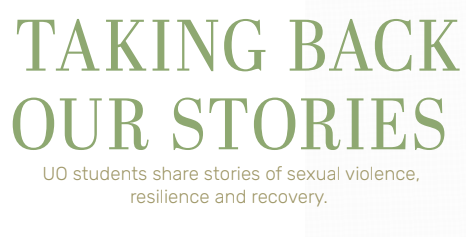
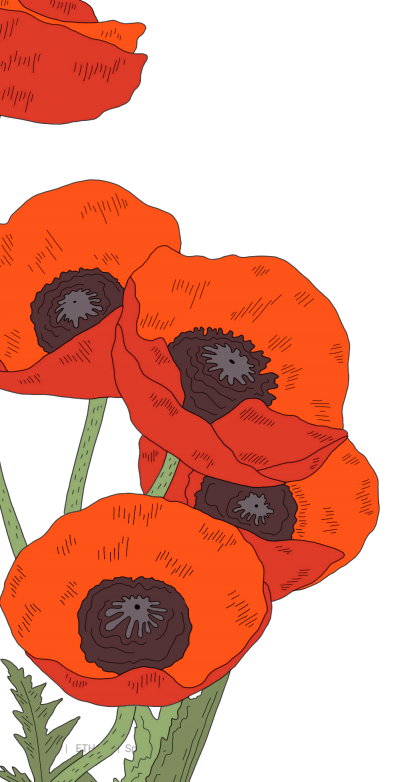
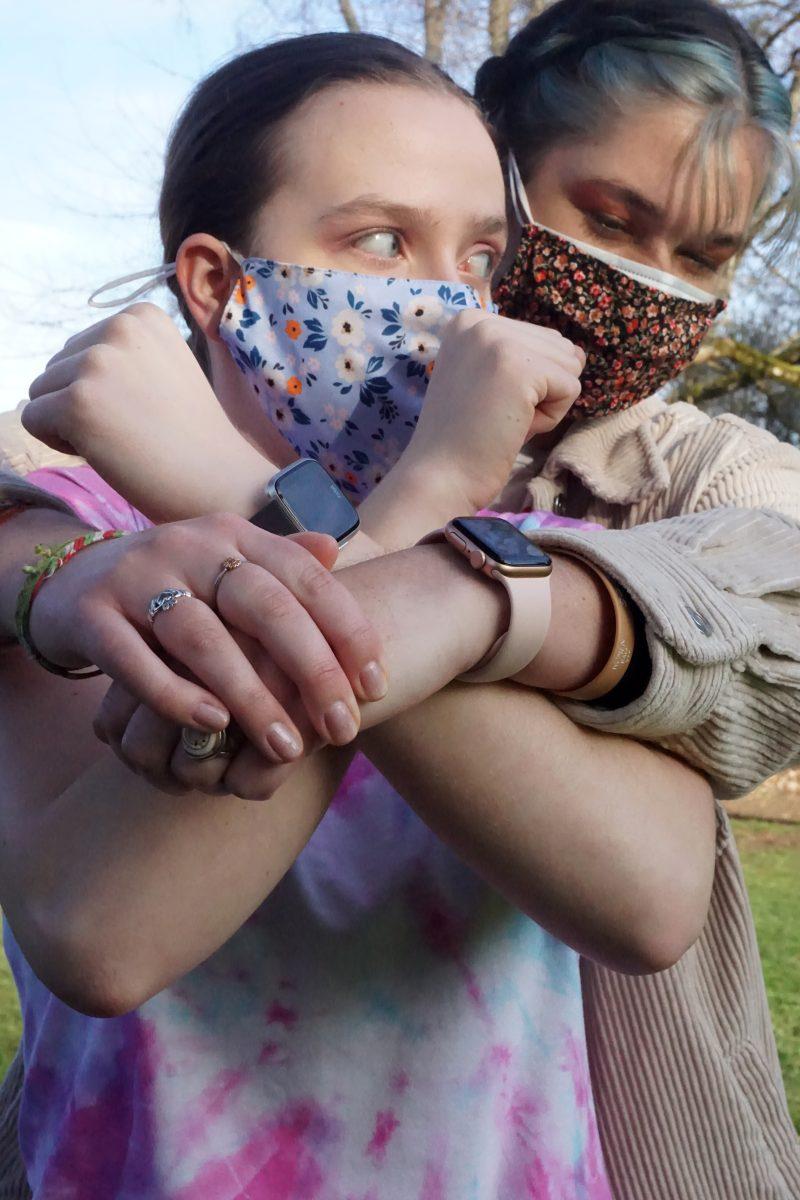
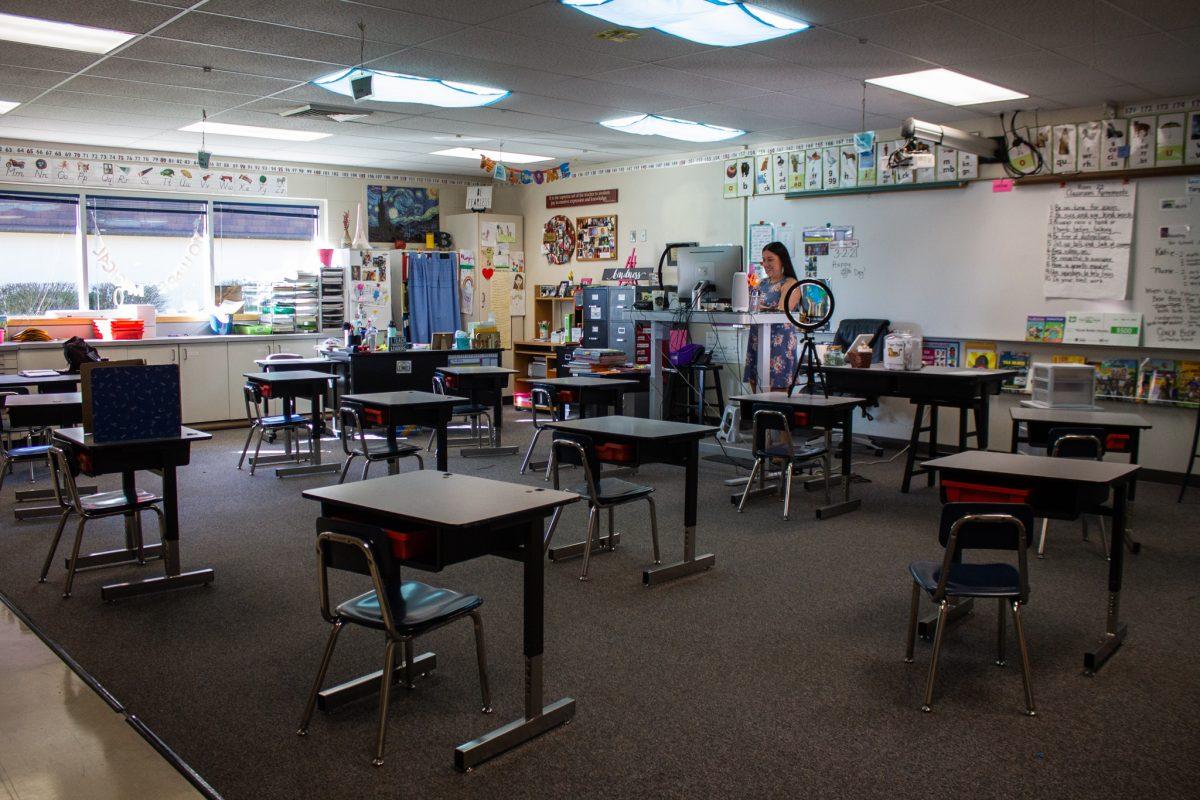
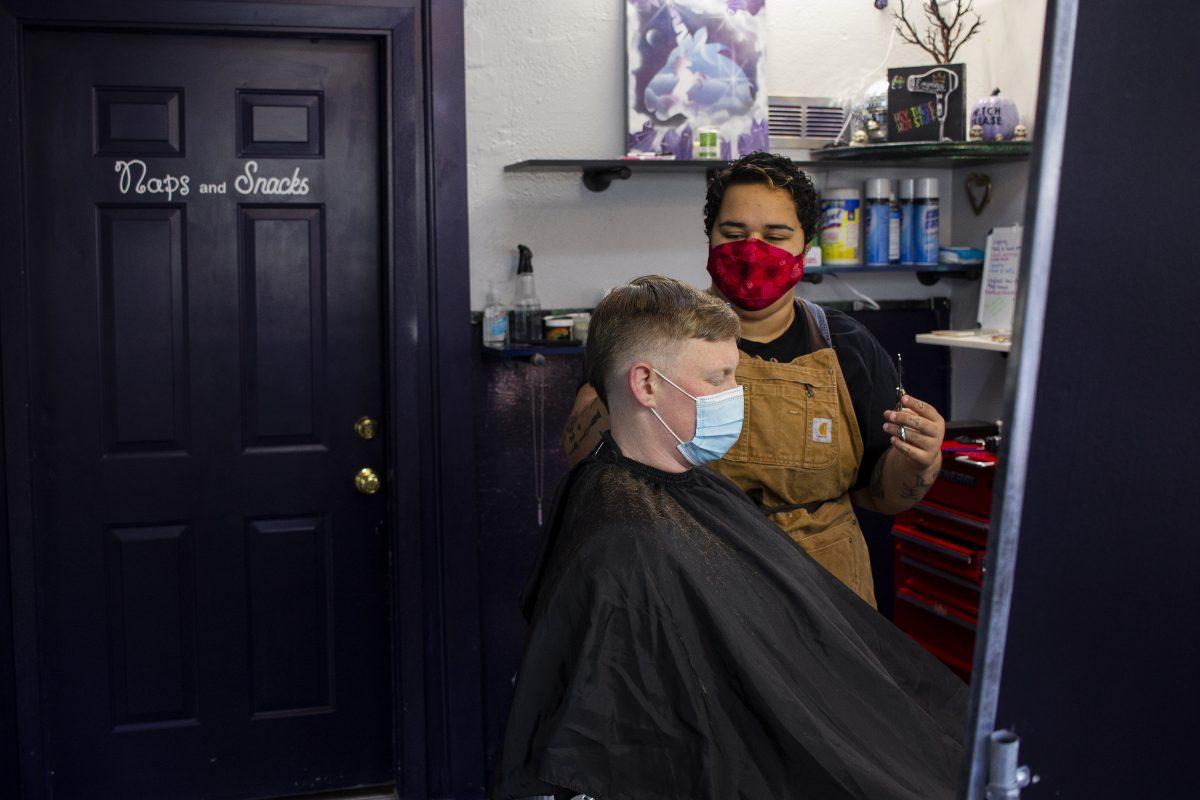


![[Photo Courtesy of the Lara Family]
Ruben embraces his beloved childhood goat, Katrina.](https://ethos.dailyemerald.com/wp-content/uploads/2025/05/katrina-1-1060x1200.jpg)



